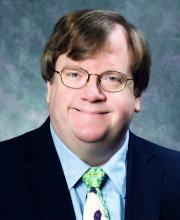For the near future, it is hard to imagine anything having a larger impact on children’s health than the need to reopen schools.
There are many social determinants of health and many of those have been, appropriately, more strongly tied to schools than to health care. Academics are important, and those are best delivered by trained educators. Nutrition is important; hot lunch programs play an important role in ensuring children don’t go hungry. Schools are a major source of day care that allows parent(s) to work and to have a career through which family income potentials increase. Schools are a location for children to socialize, to form friendships, to participate in teams, and to promote wellness. This is only a partial list, but I’m preaching to the choir with this column.
Science, though imperfect, has advanced in the 1 year since the shutdown. I am thrilled to see policy makers embracing a scientific basis for policy making. (I’ll be more thrilled if it actually happens.) There is now accumulated evidence of harm associated with children not being in schools. There is accumulated evidence that the absolute magnitude of illness transmitted in elementary schools is small, though I can’t find any researcher defining what is small enough. There is accumulated evidence that the risk of transmission of COVID-19 in schools can be mitigated with a variety of interventions that include wearing masks, spacing desks, cohorting in small classes, good ventilation, and vaccines for the teachers. It is, however, unclear how much benefit comes from each intervention. That uncertainty makes it difficult for parents and teachers to assess whether, given limited financial resources, individual school districts have prepared adequately. Teachers, like pediatricians, are dedicated to doing what is best for children. Both teachers and pediatricians are aware that sometimes administrators and politicians take unfair advantage of this commitment to children.
There is an expectation that, with 130,000 schools in the United States, some fraction of them will have outbreaks that will generate illnesses, deaths, and bad publicity. The number and degree of these outbreaks will be best mitigated by lowering the number of new cases per day in the community. Estimates are that 89%-99% of children live in so-called red zones under the Centers for Disease Control and Prevention’s guidance – meaning there is a high level of community spread of the virus. In mid-February, the CDC released new guidelines for mitigating transmission within the schools. Those guidelines seemed to make it unlikely that schools in red zones could safely reopen, but over the following week, CDC Director Rochelle Walensky walked back that notion.
So, is it “safe” to reopen the schools? As a pediatrician, I have read more on this subject than the vast majority of people in my city. I have discussed the subject with colleagues who are far more informed than I. Still, I am in not in a position to synthesize all that research. I cannot advise neighbors, parents, or church groups about this subject. This column is not going to propose a solution. I will suggest a process based on professionalism and medical ethics.
The actors in this process need to be trustworthy. Medical residents are taught that patients/parents first need to see that you are committed (to benefiting them) before they can see that you are competent. Trust in the relationship with patients is maintained with truthfulness, by embracing the professional responsibilities of a fiduciary, and by expressing commitment and compassion.
Facts should be determined based on sound science. Values should be determined with input from all stakeholders. Decision-making based on facts and values should occur transparently within trusted institutions.
Which institutions should we trust?
My recommendation, biased by my experience, is to trust the CDC. It is composed of full-time, well-funded researchers (in basic science, in medicine, and in public health policy) who have dedicated years toward lofty goals. The CDC policy-making system has recently been pressured by inappropriate political maneuvering that has shaded its integrity.
The American Academy of Pediatrics has also been providing guidance favoring reopening schools. Its committees are mostly composed of volunteers dedicated to improving the health of children. I’ve become slightly jaded by participation in the sausage-making behind its policy statements. I doubt that teachers are reassured by focusing attention on the AAP’s claims to advocate for children.
State education boards contain experts dedicated to the well-being of children. Local boards of education have less expertise and less ability to resist political persuasion, but offer disseminated decision-making.
Will parents and children heed the advice? So far, there are stories that schools which have reopened with optional and hybrid models have not seen the return of the masses. There are also many stories of schools that have stayed open throughout the pandemic without catastrophic consequences. In the near future, I would not expect more science to be persuasive. Finding a way forward will be more dependent on rebuilding trust in institutions.
Dr. Powell is a pediatric hospitalist and clinical ethics consultant living in St. Louis. Email him at pdnews@mdedge.com.


